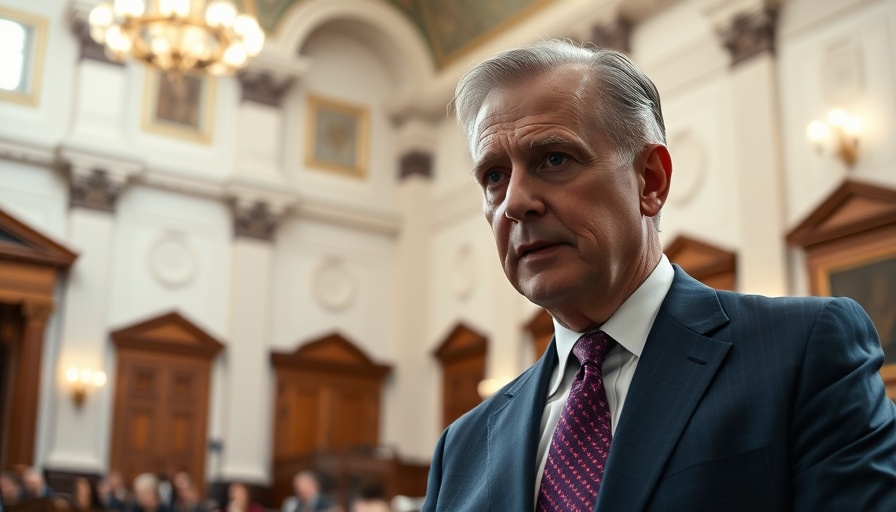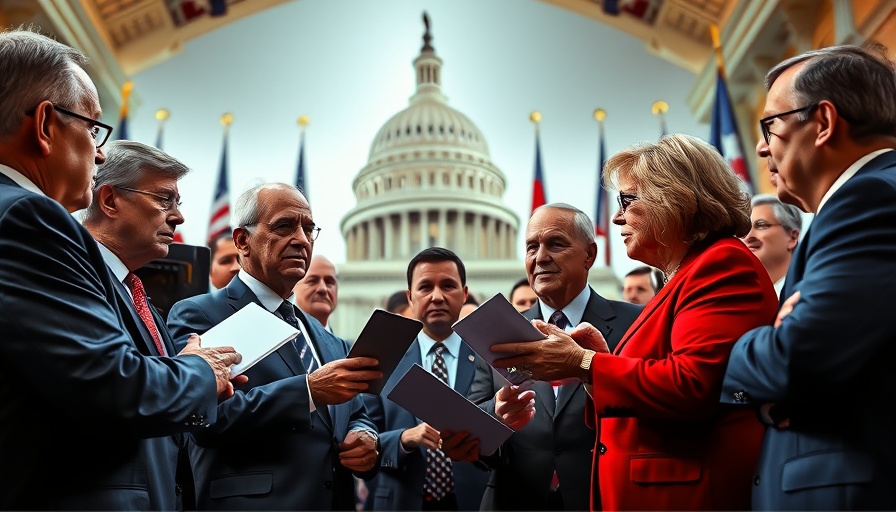
Lessons from the 89th Texas Legislature: Gene Wu's Perspective
The 89th Texas Legislature showcased a tumultuous political atmosphere characterized by Republican dominance and the challenges facing the minority Democrat party. Gene Wu, the newly elected chair of the House Democratic caucus, offered insights into the trials and tribulations that accompanied this session.
Understanding the Current Political Landscape
To understand the dynamics of the Texas House in 2025, it is essential to consider the role of the House Speaker and the shifting power balances. Wu noted that Democrats, faced with a sea of newly elected hardline conservatives, had to elevate their strategy. In making Lubbock state Representative Dustin Burrows the House speaker, Democrats attempted to minimize potential damages while hoping to retain some influence.
However, the outcome of their strategic choice seemed increasingly limited. The lack of a more substantial strategy may have left Democrats on the backfoot against legislative agendas pushing for significant changes, such as private school vouchers championed by Governor Greg Abbott.
Overcoming Challenges in a Fragmented House
The fragmented nature of the House during this legislative session brought unique challenges. Wu expressed concern over how the newly elected leadership was often junior and unprepared for the traditional power struggles between the House and Senate. The Senate, under the influence of Lieutenant Governor Dan Patrick, successfully maneuvered to secure their desired legislative outcomes, leaving minimal victories for the House.
With a record-level number of new members, many lacked the experience necessary to effectively stand up against the Senate's strategic advantages. This situation led to a perception of the House as being overcome by Senate priorities, raising important questions about the functioning and influence of the legislative branch as a whole.
The Diminishing Influence of Democratic Strategy
The choice of Burrows as the Republican Speaker raises critical questions about the sustainability of the Democratic strategy of compromise. Wu reflects on how Democrats have relied on this approach for years and what that reliance costs them. During the 89th session, the party once again faced the blunt reality of diminished influence.
As voters grow increasingly polarized, the idea of electing Republican speakers to quell damage may not hold the same effectiveness that it once did. Wu speculates that the Democrats may need to shift their tactics if they are to navigate the tumultuous waters of Texas politics effectively.
The Implications of Legislative Outcomes
The aftermath of the session also opens a dialogue about what the Republican-led outcomes mean for various communities across Texas. Wu, known for his advocacy for immigrant communities, worries about the broader implications of legislative decisions that do not reflect the values and needs of an increasingly diverse population.
This is especially pressing as the Republican agenda often diverges significantly from the Democratic ideals championed by Wu and his colleagues. The rise of extreme right-wing legislators may alienate many constituents and lead to worsening disparities in education and public services, sparking conversations about the importance of constituency representation in legislative decisions.
Looking Ahead: Strategies for Future Sessions
As Texas Democrats regroup post-session, Wu emphasizes the need for robust communication within the caucus and a united strategy moving forward. Improved external communication will better articulate the Democratic platform to constituents, keeping their needs front and center in future legislative efforts.
Furthermore, reciprocity may need to become a part of the Democrats' strategy moving forward. Rather than simply reacting to Republican agendas, the party could benefit from proactive proposals that align more closely with their constituents’ concerns.
The Way Forward: Sustaining Hope Through Challenges
While the challenges are daunting, Wu remains optimistic about the ability to harness community voices and create a long-term impact on state legislation. The need for advocacy and grassroots movements cannot be understated. By remaining engaged and informed, Texans can influence their representatives and demand better governance that reflects a diverse and inclusive society.
In conclusion, the insights shared by Gene Wu highlight the critical crossroads at which Texas Democrats find themselves. While the 89th Legislative session presented considerable hurdles, the path ahead is illuminated by opportunities for re-engagement and renewed strategies. The call for action to all Texan voters is to remain vigilant, informed, and active to ensure that their voices resonate within the halls of the legislature.
 Add Row
Add Row  Add
Add 




 Add Row
Add Row  Add
Add 


Write A Comment